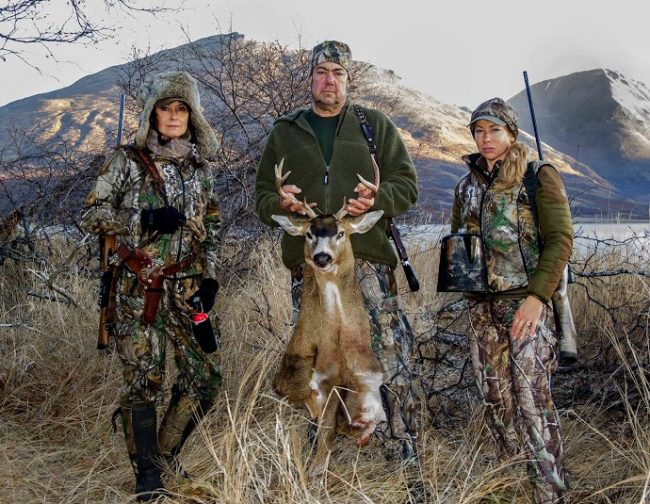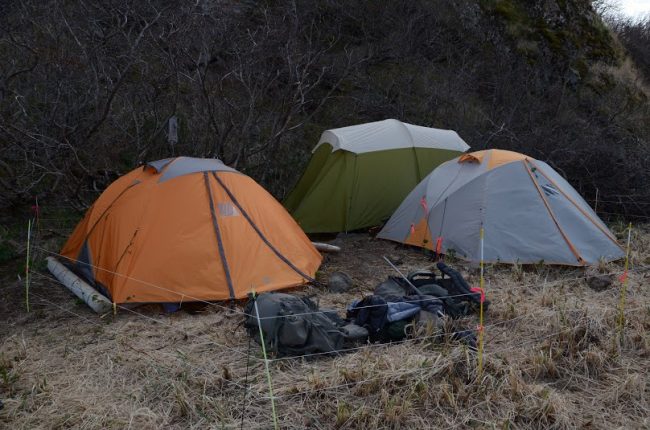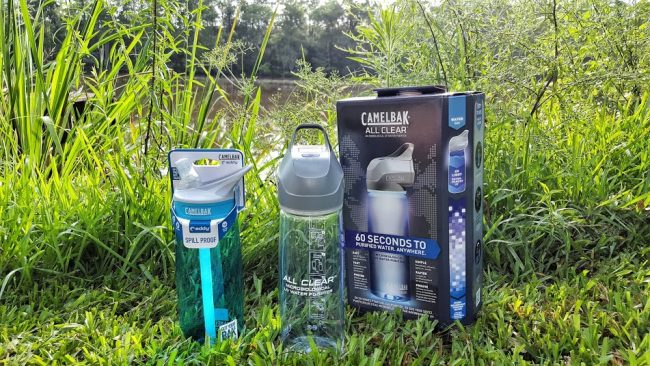For most of my life, if I heard someone talk about a camping trip, a picture would pop into my head that would involve an RV or a large tent. The setting would be on a nice grassy slope, a creek loaded with fish nearby with a bath house just a short walk away. In more recent years, cell service would enter my mind, and would usually be one of the first things I’d ask about. Of course there would be lots of food, with a store within a short drive where water and other necessities could be easily purchased. After a few wilderness camping trips, the picture in my head began to evolve.
My very first wilderness camping trip involved a horseback ride deep into pristine Wyoming Washakie Forest with several women. It was a fully guided camping trip with a little fishing on the side, catch-and-release only. Although it was very rustic terrain in bear-infested woods, how rough could it be with a makeshift port-a-potty tent? We did have to lock up our food, candy, sweets, and even toothpaste in a bear-proof box at night. It proved to be the perfect maiden voyage with experts at the helm. I have three words to describe Carl Sauerwein of Boulder Basin Outfitters: brave, bold and fearless. Leading a group of mostly novice campers can present many challenges to an outdoorsman, but as trail boss he kept everything running smoothly. He slept by the fire with his two bear alerts (his dogs), basically sleeping with one eye open and keeping watch as we all slept through the night. We all arrived back at the Cody, Wyoming, trailhead safe and sound, with lots of memories.

After a short break, I am mounted and ready to ride with a group of girls to the campsite deep in the Washakie Forest for my very first wilderness camping experience. Aside from what I have on the horse with me, a small, 25-pound duffle on a pack mule somewhere in the line would see me through the next few days. Packing light: It’s the first lesson of wilderness camping.
My second trip to camp in the wild was to be spent in the outer reaches of Kodiak Island, Alaska, with two of my dear friends, Louis and Ruth Cusack. The fact that they took on the challenge of bringing a novice camper to a remote location for 8 days speaks volumes about the courage these two people have. They are very brave souls, in more ways than one. We flew out of Kodiak on a carefully packed float plane. After an hour or so of flying, Louis began to scope out the areas below us, and picked a spot near a lake, the perfect water source. We spent the next 8 days hiking, hunting and hanging meat. I had a lot to learn; they both had the patience of Job, and we made it through the trip with 3 black tail deer to bring home, and a bear story to boot! You can see a quick video here, as Louis and I recount the bear encounter after the next morning’s hunt. I am still visibly shaken in the video, but braver for the experience and so thankful I was with those two fearless folks. Picking a spot in a remote wilderness, setting up camp from scratch, and taking it down was an experience that I wouldn’t trade for all the tea in China…or all the bears on Kodiak.

The final day of our 8-day wilderness camping/hunting/hiking trip on Kodiak Island, Alaska. Ruth had enough battery left in her camera to take one last picture as we started to break down camp, preparing for the float plane to arrive and return us to civilization. Note the bear spray hanging from my hip. After our bear encounter, it stayed close at hand. (Ruth Cusack photo)
Ruth Cusack, expert outdoorswoman, wilderness camper and one tough cookie, shared this tip for setting up a camp in the wilderness: “Picking the right base camp location as important as remembering to bring ammo. This could mean the difference between having a great hunt and chasing your base camp down the beach. I usually do my best to find a flat location with some sort of a wind break to protect our camp from the predominant wind directions—usually a bluff, mountain side or clump of alders. Without this type of proper consideration for locating our campsite, we would have been in a heck of a bind in 2009, when a great easterly blew in with 45-mph sustained winds, gusts up to 65 mph, and the most rainfall ever recorded in a 24-hour period.”

Choosing the right place for a campsite can make a huge difference, whether it’s tucked into a clump of trees or protected by something as minor as slight rise in the terrain. (Ruth Cusack photo)
The list of supplies needed to survive on a camping trip should be short, and every ounce considered. Here are just a few supplies that I deem important and necessary on any trip, although my overall list varies with the time of year and terrain.

Having clean water to drink is important in daily life, and even more important away from civilization. The new CamelBak All Clear is one of the lightest and most effective personal filtration systems available. It is rechargeable, purifies in 60 seconds with a screen to verify success. The Eddy water bottle can be used to store the purified water and you can get back on the trail with 1.5 liters of water secured easily with the large handles. All Clear MSRP $99.00; Eddy MSRP: $25.
Better safe than sorry. Sabre Red is a world leader in all types of defensive sprays, and this can of bear spray could save your life and limb. MSRP: $39.99.
Bushnell lumen flashlights can be recharged with the included USB cable, and has charging-indicator and battery-status notification lights. The 500-lumen model is also equipped with optional auto-dimming, which decreases the intensity of the light when you’re looking at maps or other items up close to reduce glare. MSRP: $89.99.
Charge your electronic devices anywhere you go. The new PowerSync SolarWrap Mini-MAX from Bushnell is a solar-powered portable charging station that is lightweight and compact, yet durable for long-term reliability and performance. The unit quickly charges devices such as MP3 players, smartphones and cameras, indoors and out. Unlike most solar devices, the SolarWrap Mini-MAX’s onboard battery holds a charge and continues to recharge in less than full sun. MSRP: $199.95.
When the weather turns wet, it is nice to have a suit that pops out in a snap to keep you high and dry. Weighing around 12 ounces, this Frogg Toggs pro action suit is my rain gear of choice for fishing, camping, boating and hiking. MSRP: jacket, $54.95; pants, $39.95.
Bushnell Trophy Xtreme binoculars come in several different strengths. Built rugged, with waterproof and fogproof lenses and a built-in lens cover, these binoculars assure that you have a clear view every time. MSRP: $179–$249.
The list could go on and on, but so would the weight, which is crucial to keep down if you’re traveling by foot, horse, or float plane. Wilderness camping has taught me to keep it simple and count every ounce. Such adventures present many challenges, but surviving in the wild with just the bare necessities will provide you with serenity you can’t find anywhere else. You’ll leave with a new respect for the earth and its creatures, and a bit of extra courage you found without taking a trip down a yellow brick road.
Becky Lou Lacock spent most of her life as an entrepreneur owning several retail businesses. Her shooting and hunting adventures began later in life, and her excitement and enthusiasm just seems to spill out onto everyone around her. She tells tales of her adventures here at The WON, in her column titled “Becky Lou Outdoors.” With a firm belief of “Let No Woman Be Left Behind,” Becky Lou also participates, promotes and organizes female group activities and hunts across the country. She works diligently to provide women of all levels of physical and financial capabilities with perfect outdoor opportunities. As a professional freelance writer, she has been published by media outlets in print and online: InterMedia Outdoors’ Game & Fish Magazine / Sportsman Magazine and OutdoorHub.com View all posts by Becky Lou Lacock
LOL!! You were NOT FAT! Thanks for the memories! Miss you and Miss Ruth!!
Great read Becky Lou. Hey! Who’s that fat guy in the middle? I haven’t ran into him for a while. 🙂